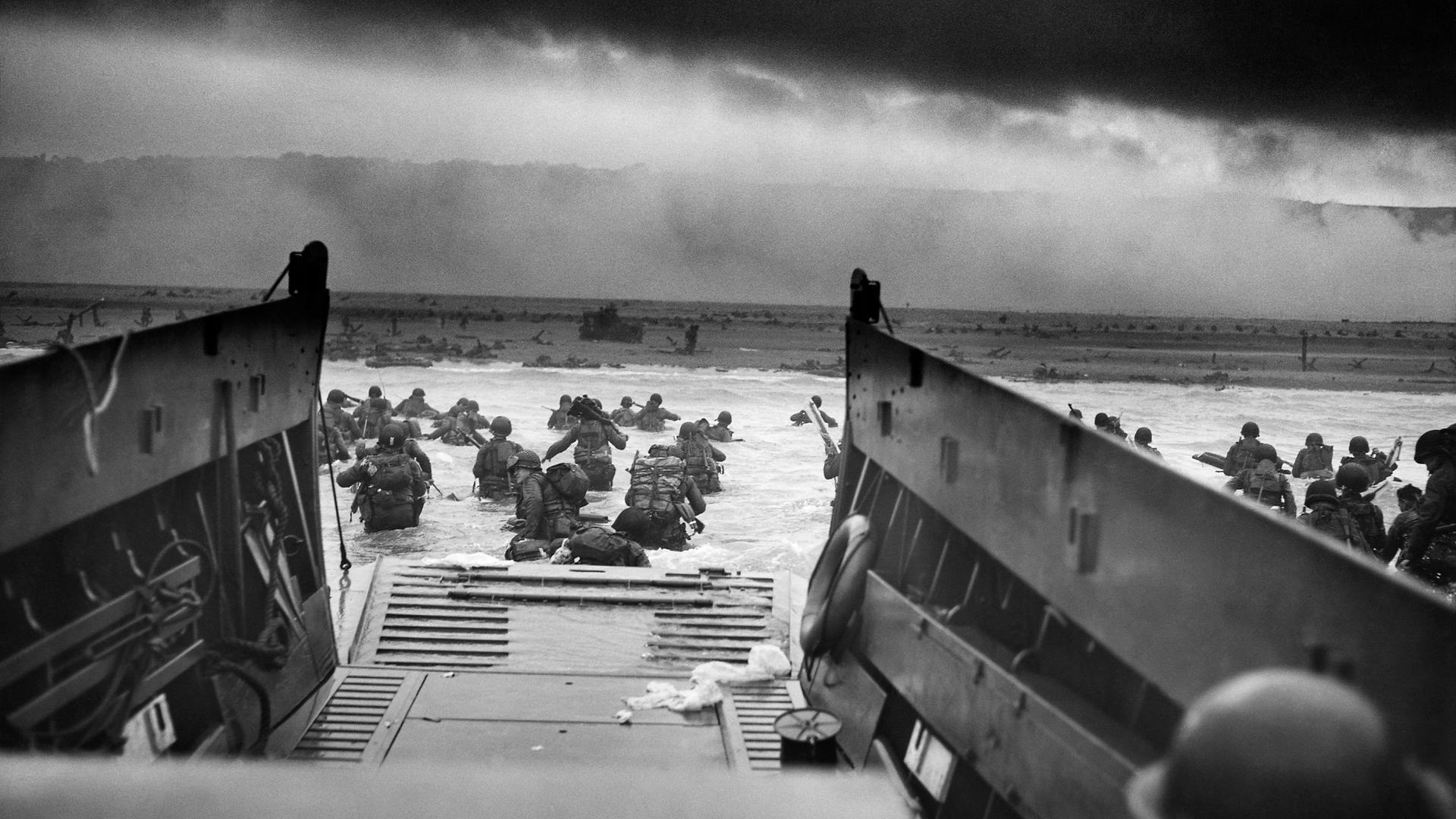New documents reveal this British WWII spy may have been one of the most important agents for the Soviets
US troops wade ashore on D-Day. Belfrage is alleged to have passed information to the Soviets about the Allies plans to open a second front in World War II.
The name Cedric Belfrage may not mean much to you. But the British American film critic has just been exposed as one of the key spies of World War II.
"I think he was one of the most important spies the Soviet Union ever had," says Svetlana Lokhova, a historian of Soviet intelligence. "Because during Second World War when the very existence of the Soviet Union depended on the help from Britain and America and their Allies — and that help was slow in coming — he was able to provide all British and American information about opening of the second front, and the attitude of the Allies toward helping the Soviet Union. So this information was absolutely vital to the survival of the Soviet Union."
Secret British intelligence files on Belfrage were declassified by the UK’s National Archives this week.
So just who was Cedric Belfrage?
He was born in 1904 the son of an English physician, and went to Cambridge University. But then he dropped out and went off to California where he established himself in Hollywood as a film critic, and press agent.
His conversion to communism happened sometime in the 1920s or 30s. Probably after one of his two visits to the Soviet Union. Here’s how Belfrage himself described his radicalization in a 1977 TV interview:
“By the time I left a Hollywood, I think I was well on the road to becoming a socialist," he says. "I couldn’t stomach the inequalities of the scene, and it seemed absurd to me as I had had a chance to talk to the very wealthy people, and I really didn’t think they got very much out of it, anyway. Most of them were very unhappy people.”
He secretly joined the American Communist Party, just about the same time he filed papers to become a US citizen.
When World War II rolled around, Belfrage was recruited by British intelligence as part of an MI6 unity operating out of New York called, British Security Coordination. This functioned, in effect, as a clearing house for high-level intelligence being exchanged between Britain and the US.
“When he’s there he has access to real secrets,” says the BBC’s security correspondent, Gordon Correra. “And he was also passing some of those on to the Russians.”
Belfrage’s service to the Soviets was investigated by the FBI in late 1945 after an American called Elizabeth Bentley turned herself in to the FBI, and began exposing a Soviet spy ring. She herself had been spying for the Soviets.
Eventually Belfrage is called before the House Un-American Activities Committee, and later deported to the UK.
But he’s never prosecuted. The warnings from the FBI landed on the desk of one Kim Philby, another British intelligence agent in the pay of the Soviets. “So the investigation went nowhere,” says Correra. There was also some embarrassment over how such a flaky character got recruited.
“The truth is they engaged quite a few flaky characters in those days,” says Correra. “You know, if you’re being honest, they also engaged quite a few communists in those days … So they really didn’t have a very good record of vetting. You know, someone recommended someone else — what they call here in Britain the ‘old school tie’ syndrome: ‘oh, I know him and he’s a good chap,’ and you’d get a good job in British intelligence.”
Attending Oxford or especially Cambridge helped, as did going to the right school and coming from a good family.
“Connections got you into British intelligence rather than necessarily being good at the job or having been carefully checked,” says Correra. “And so that added to this issue of embarrassment when it was realized he’d been passing secrets to the Russians apparently.”
So after returning to Britain, Belfrage is placed under surveillance for a while before going off to live in Latin America. Correra says he lived “basically as a free man to the end of his days.”
“So Belfrage effectively, it appears, gets away with it,” Correra adds.
Cedric Belfrage died peacefully in Mexico, in 1990, aged 85.
Our coverage reaches millions each week, but only a small fraction of listeners contribute to sustain our program. We still need 224 more people to donate $100 or $10/monthly to unlock our $67,000 match. Will you help us get there today?
